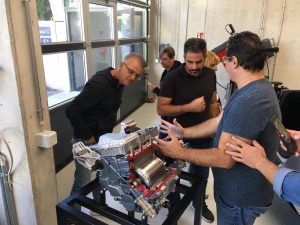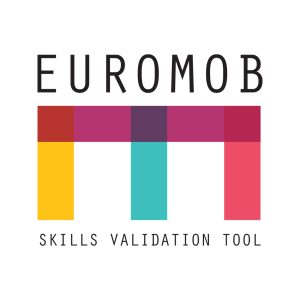AONTAS is currently leading on a learning mobility project called ‘AONTAS – Making an Impact at European Level’. The project allows participating organisations to send staff to other European countries to undertake a dedicated period of learning or professional experience, such as job shadowing or training.This is a two year project funded under the adult education field of the ERASMUS+ programme and involves a consortium of seven organisations from the AONTAS Community Education Network (CEN).
In spring 2017 James Clifford from Kerry Action for Development Education (KADE) travelled to Rethymno, Crete to take part in a five day job shadowing mobility with the European Centre in Training for Employment (ECTE). The aim of a mobility was to increase awareness of cross cultural issues between Ireland and Crete, meet with potential partners and discuss how KADE could become a host in EU mobility programmes to strengthen the capacity of their organisation. James is a board member of KADE and they promote and support development education in Co Kerry. In our latest blog James documents his trip to Crete and the learning he is bringing back to Kerry.
Monday
We began the day with introductions and orientation by Costas Androulakis, Managing Director of ECTE. He is the person that I would be shadowing during my time in Crete.He gave me an overview of the activities of the organisation which include the implementation of training programmes, research relating to the needs of the workforce, and the planning and development of international European projects related to local development, employment and social cohesion.
In the afternoon Costas and I drove to Heraklion, along the magnificent coastline of Northern Crete to attend a seminar hosted by the Region of Crete. Here I was given an overview of the ECTE 5 year strategic plan which includes four pillars: Tourism, Environment, Agro Diet and Education. It was very interesting to see how the meeting was conducted. They were attempting to bring identified business needs together with research institutions, with the aim of producing solutions to those needs and creating value for both parties in the future.
Once the meeting concluded we took a cultural stroll around the old city of Heraklion. I was lucky enough to meet with one of the four elected Vice Governors of the City Panagiotis Simandirakis, along with city official Costis Flouris, who talked about our past collaborations with ECTE. We discussed the possibility of some mobility collaborations in the future and it was a very positive meeting.
Tuesday
Today I learned about the different systems used in the ECTE office. Costas explained how they use Basecamp Software for internal and external projects and how it can be useful to deal with issues. ECTE runs a number of European projects including its KA2 Erasmus + Sector Skills Alliance on geothermal and solar skills (GSS) in Vocational Education Training (VET) institutions. This project will see the implementation and certification of VET programmes (EQF level 4-5) in these areas. I learned a lot around the application and implementation of these projects.
Wednesday
On Wednesday we worked on a pilot project for the long term mobility of apprentices throughout Europe. I participated in an information call from Brussels where I gave an introduction to the project and answered some questions that arose. The general consensus was that some countries had very good apprenticeship regimes, such as Germany and others not so good. The idea of this project is that potentially a single framework could include all 28 countries in the EU. The current project is a follow on from a previous pilot and a second attempt to try and remove barriers to apprenticeship training in the EU. It was very interesting to participate in this and to be given the opportunity to disseminate information to a wider audience.
Thursday
On Thursday we went to the Technical University of Crete, they hosted a seminar by the National Organisation for the Certification of Qualifications and Vocational Guidance which covered topics such as National Qualification Framework, mobilities and youth, Vocational Education Training (VET), Lifelong learning and Guidance for Adult Training and validation of Learning Outcomes.
Friday
Overall my trip to Crete has been very informative. The amount of work going on in ECTE is very impressive. The mobility has given me great opportunities and my only wish is that it could have been a little bit longer. I would need more time to fully understand how the organisation and its affiliates work but nonetheless a very worthwhile visit. The learning for me is that in order to operate well at an EU level your organisation needs to be well funded. This ensures that an organisation has a number of highly qualified staff which allows the organisation to run efficiently, balance the workload and respond to local needs.
I would like to thank AONTAS for the opportunity to take part in this project.

